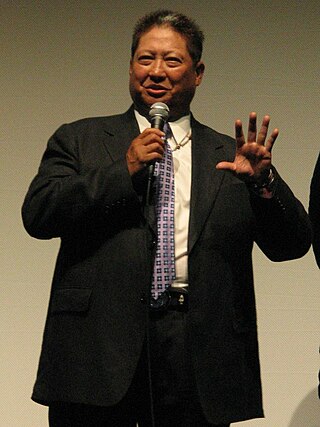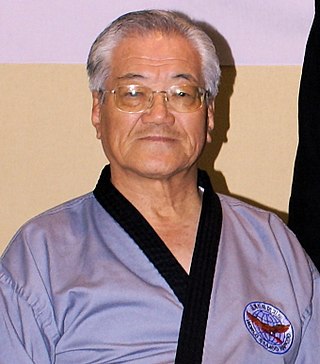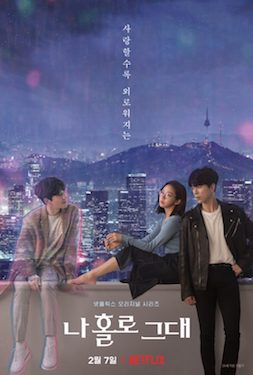Hapkido is a hybrid Korean martial art. It is a form of self-defense that employs joint locks, grappling, throwing techniques, kicks, punches, and other striking attacks. It also teaches the use of traditional weapons, including knife, sword, rope, nunchaku, cane, short stick, and middle-length staff, gun, and bō (Japanese), which vary in emphasis depending on the particular tradition examined.

Sammo Hung Kam-bo is a Hong Kong actor, martial artist, film producer and director, known for his work in martial arts films, Hong Kong action cinema, and as a fight choreographer for other actors such as Jackie Chan.

Korean martial arts are fighting practices and methods which have their place in the history of Korea but have been adapted for use by both military and non-military personnel as a method of personal growth or recreation. The history of Korean martial arts can be traced as far back as the prehistoric era. The ancestors of modern Korean people migrated and settled in the Korean Peninsula as early as the 28th century BC, a geopolitical region besieged by thousands of known documented instances of foreign invasions. Consequently, the Korean people developed unique martial arts and military strategies in order to defend themselves and their territory.
The Game of Death is an incomplete Hong Kong martial arts film, filmed between August and October 1972, directed, written, produced by and starring Bruce Lee, in his final film project. Lee died during the making of the film. Over 100 minutes of footage was shot prior to his death, which was later misplaced in the Golden Harvest archives. The remaining footage has since been released with Lee's original Cantonese and English dialogue, with John Little dubbing Lee's Hai Tien character as part of the documentary titled Bruce Lee: A Warrior's Journey. Much of the footage that was shot is from what was to be the climax of the film.

The Korea Hapkido Federation is the largest, wholly hapkido, governing body for the Korean martial art of hapkido in the world. It is made up of predominantly Korean born students and instructors or those individuals who have directly trained in South Korea. This organization is based in Seoul, South Korea and its president is Oh Se-Lim.

Ji Han-jae is one of the highest ranking hapkido instructors in the world and founder of Sin Moo Hapkido who appeared in the movie Game of Death with Kung-Fu master Bruce Lee.

Choi Yong-sool, alternative spelling Choi Yong-sul, was the founder of the martial art Hapkido. He was born in today's Chungcheongbuk-do, South Korea, and was taken to Japan during the Japanese occupation of Korea when he was eight years old. Choi later stated that he became a student of Takeda Sōkaku, and studied a form of jujutsu known as Daitō-ryū Aiki-jūjutsu (大東流合気柔術) while in Japan. Choi returned to Korea after the end of World War II and in 1948 began teaching his art at a brewery owned by the father of his first student Seo Bok-seob. He first called his art "Yu Sul (Korean: 유술)" or "Yawara " later changing it to "Yu Kwon Sool " and "Hap Ki Yu Kwon Sool " and eventually Hapkido.

Myung Jae Nam or Jae-Nam Myong was a Korean Hapkido practitioner who founded two martial art styles; Hankido and Hankumdo.
Angela Mao Ying is a Taiwanese actress and martial artist who appeared in martial arts films in the 1970s. One of the most prominent martial artist actresses of her time, she is nicknamed "Lady Whirlwind" and "Lady Kung Fu". She was positioned as a female version of Bruce Lee.
Dragon Lee is an actor and practitioner of Taekwondo and Hapkido. He made a name for himself as a martial arts film star in the 1970s and 80s. His birth name is Moon Kyung-seok, but he has also been called Keo Ryong in South Korea.
Hapkido, released as Lady Kung Fu in North America, is a 1972 Hong Kong martial arts film directed by Huang Feng and starring Angela Mao. The film co-stars Carter Wong and Sammo Hung, and has early cameo appearances from Jackie Chan, Yuen Biao and Corey Yuen. It was released by Golden Harvest.
Kwon Tae-man was an early Korean hapkido practitioner and a pioneer of the art, first in Korea and then in the United States. He formed one of the earliest dojang's for hapkido in the United States in Torrance, California, and has been featured in many magazine articles promoting the art.
Kim Moo-hong was one of the earliest students of Korean hapkido under the founder of the art Choi Yong-sool. He was a pioneer of the art opening one of the first schools for the art in Seoul. A great innovator he is credited with having helped develop the kicking system used in most hapkido schools today. He formed one of the earliest Korean organizations for the art, the Korean Hapkido Association.

When Taekwondo Strikes is a 1973 Hong Kong martial arts film directed and written by Feng Huang, and produced by Raymond Chow. The film is known for the collective martial arts experience of its cast and the high-quality fight choreography. The film stars an international cast of martial arts film actors, including Angela Mao, Jhoon Rhee, Anne Winton, Wong In Sik, Carter Wong, Kenji Kazama, Sammo Hung, Biao Yuen, and Golden Harvest producer Andre Morgan. This was Jhoon Rhee's only film, and Anne Winton's debut film.

Incarnation of Money is a 2013 South Korean television series about greed, ambition, and love. Starring Kang Ji-hwan, Park Sang-min, Hwang Jung-eum, Oh Yoon-ah, Choi Yeo-jin and Kim Soo-mi, it aired on SBS from February 2 to April 21, 2013 on Saturdays and Sundays at 22:00 for 24 episodes.

Sun-hwan Chung, also known as James Sun-hwan Chung, is one of the highest-ranking Tang Soo Do, Hapkido, and taekwondo grandmasters in the world. He is founder of the Moo Sool Do form of martial arts and is president of the World Academy of Martial Arts, LLC.

Fist of Unicorn is a 1973 Hong Kong martial art movie, starring Unicorn Chan. Аction and fight scenes were directed and choreographed by Bruce Lee.
Kim Yun-sik is a South Korean hapkido and taekwondo instructor. He was born in Seoul, Korea in 1943. He is one of the highest ranking hapkido and taekwondo instructors in the world and founder of Bum Moo Kwan Hapkido.

My Holo Love is a 2020 South Korean television series starring Yoon Hyun-min and Ko Sung-hee. It was released on Netflix on February 7, 2020.










